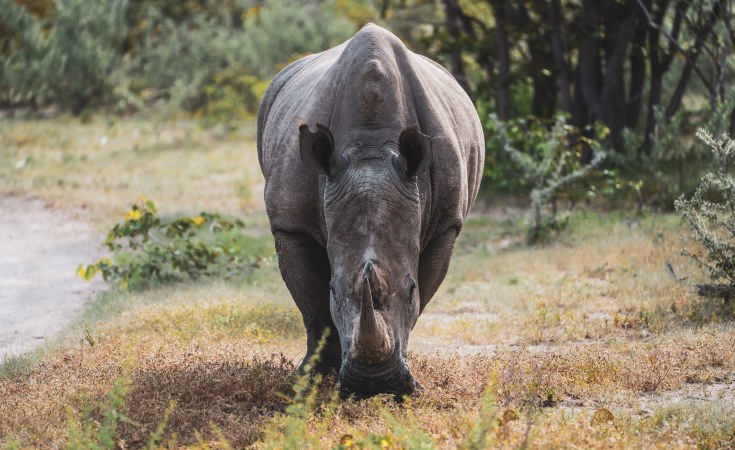Windhoek, Namibia — Since the start of the year, at least six rhinos have been poached in Etosha National Park, home to the highest concentration of black rhinos in the world. Last week, the Ministry of Environment, Forestry and Tourism kicked off the annual dehorning campaign with a goal of removing the horns of 600 rhinos in the next 12 months.
Increased incidents of poaching -- which recently led to several arrests -- have prompted Namibian authorities to embark on a mixed approach to deter would-be poachers from targeting black rhinos. The critically endangered species is often targeted for its horns which hold mystical, ornamental and medicinal value for consumers in Asian markets.
Speaking at the launch of the annual dehorning campaign, Minister of Environment and Tourism Pohamba Shifeta said dehorning rhinos brings down their value and deters poachers from targeting them.
"We want to dehorn most of them so that they can become safe, and also because sometimes they kill each other. Because most of the fatalities happening, natural fatalities happening among them, especially black rhino, they are very vicious because of fights," Shifeta said.
Recently appointed to the Blue Rhino Task Force -- a group comprised of military, police, wardens and intelligence officials -- Namibia Regional Police Commander Naftal Lungameni Sakaria told VOA that despite policing efforts, poachers remain a threat to the country's conservation efforts.
"The Etosha National Park is the park ... that has got more black rhino population in the world, so you can understand that this is very important for the country," he said. "People come from everywhere as tourists, and they are attracted by the idea that they will -- the opportunities are high -- that they will see a rhino. And they will. It is important. It is of strategic importance to the country."
Dr. Conrad Brain, a veterinarian, said that while dehorning is an effective way to deter poachers, the practice can have an impact on the survival of rhinos in the wild.
"There was a big project done between Namibia and an American university where they looked at the negative effect of dehorning in terms of the mother rhinos being able to protect their offspring from predators because they have no horn," Brain said.
Brain said the findings are not insignificant, but the positives of dehorning outweigh the negatives.
The dehorning program has been ongoing since 2014. This one is set to take place for the next 12 months, targeting 600 rhinos.
The horns are DNA profiled, marked and stored in the national stockpile. Namibia sits on tons of rhino horns, but the ministry would not disclose the value of the stockpile, citing security concerns.
Under the Convention on International Trade in Endangered Species (CITES), trade in rhino horns is banned worldwide. At the CITES meeting last year in Panama, Namibia sought to have the ban lifted for white rhinos in order to raise money for conservation efforts, but the request was denied.


